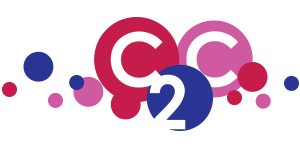Your client contract only needs 3 things (to be legal).

Listen
Your client contract only needs 3 simple things to be legal.
(It does not need to be a separate document that you send to somebody, but these 3 things need to be present.)
So, what are they (and how do you know if you have them now)?
1. Offer
You need to extend an offer to work with you. And you need to do it with some specificity. In other words, name what the work is, how you will do it together and what it will cost (and when). You make offers all the time. If you engage a client, you make an offer.
2. Acceptance
Your client needs to say yes, they accept your offer. They do want to work with you, in that way. Your offers are also accepted all the time. If you engage a client, that client accepted your offer.
3. Exchange of Value
You and your client need to exchange something of value (legally called, consideration)—and that exchange must go both ways. You provide the work offered. (That’s the value you exchange.) They pay you. (That’s the value they exchange.) If you engage a client, you have an exchange of value (assuming you provide a service or product and your client pays you).
If you create for your clients (you’re a copywriter, photographer, web designer, graphic designer, etc.), you will also need:
4. Work for Hire (or Not)
You need to decide who owns what you create for your clients—and when (before or after you get paid). There are 3 different ways to do this, and each requires specific legal language. (If you are a creative service provider and we work together, we walk through which option is best and easiest for you.)
That’s it.
(Yes, that’s really it.)
If you are engaging clients, you already have a contract.
So then, why have a written contract?
The answer is in the clarity, the detail, and the peace of mind.
Your client contract guides the flow of work, money and relationship with clarity and consistency—and that cultivates trust between you and your clients.
It provides a framework for how you’ll work together, how you’ll communicate, what you’ll expect from each other, and how you’ll show up for each other. And it sets tone, intention and course for this.
When expectations are clear, stated and agreed upon, you are both at ease. You feel trusted and trustworthy. You can relax and do the work (really do the work). You can show up, fully. Because you are held by the clear framework of relationship set forth in your client contract.
(It never ceases to amaze and delight me when clients stand in their work more fully and powerfully than they ever have after creating a client contract that really works.)
And the exciting part is: beyond these 3 simple elements, the form, energy and tone of your work and your client relationship can shape the contract.
If you’re wondering whether
you need a written client contract:
Or whether you need to revisit your written contract so that it speaks in the language of your client relationship, ask:
Can your client contract be useful, as the river banks, for the flow of work and money and relationship in your business?
Can it clarify anything?
Can it stop a leak of money, energy or time?
Can it end a frustration or smooth out a process?
Is there anything else your client contract can do for your business?
Not sure, but curious?
Schedule a ½ hour consult below to discuss what your client contract can best do for your business—and how.
Your client contract is a powerful tool for your business, and I’d love to work with you to craft it and put it to its best use.
schedule a 1/2 hour consult with me.
In your consult, we will:
- Ask what is working and not working—with your client contract and in your client relationships;
- Create a preliminary plan for crafting a client contract that creates clear boundaries, facilitates the flow of money, work and communication in your client relationships, and feels good to both you and your clients.
- Answer any questions you have about creating your contract—or working together.
You can then decide to work together to craft the client contract that is exactly right for your business—practically and energetically. (If you do, your consult fee will be applied to the fee for your client contract.)
It’s my job to ask all the pertinent questions, so you don’t need to prepare anything at all before we meet. (Clients find just the consult puts them at ease.)
I look forward to working with you!
